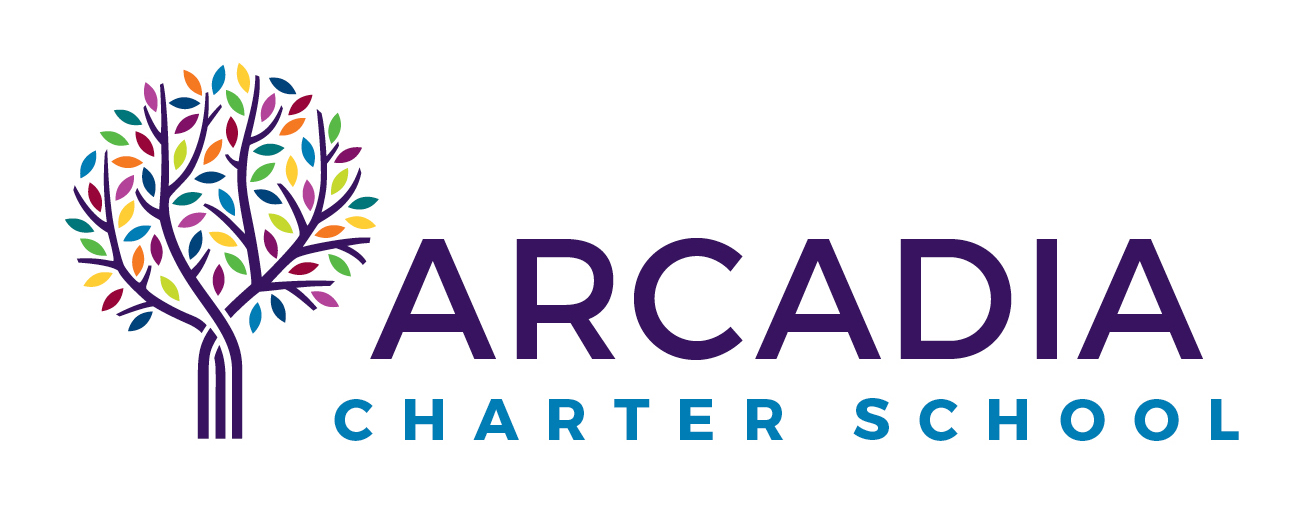Arcadia This Week 1/11/2021
Hello, Arcadia families,
Here is what’s up at Arcadia this week!
Monday, 1/11: Day 6
Tuesday, 1/12: Day 1
Wednesday, 1/13: Day 2
Thursday, 1/14: Day 3
Friday, 1/15: Day 4--Asynchronous Day
-
For the asynchronous day, just a reminder to students that each class will have a brief assignment that you need to complete to be counted as
“present” for attendance. -
For support, the paraprofessional staff will be available! Links to their meets are available at the bottom of the MS and HS schedules
Updated Schedule for January/February
January 4-29: Distance learning
January 8: Asynchronous Day
January 15: Asynchronous Day
February 1: Return to hybrid, if the case rate allows**
**The Governor’s most recent order reiterated that secondary schools should follow the original guidelines and collaborate with their Regional Support Team to make learning model decisions. The current case rate on the Rice County website is 62.19/10,000. We would need the case rate to be below 30/10,000 in a two week period to return to hybrid and below 10/10,000 to move to all face to face. (Precautions like face masks, distancing, and handwashing will remain in place in any model.)
Planning days would take place Monday 1/25 and Tuesday 1/26, 3rd quarter would begin online Wednesday 1/27, with a return to the hybrid model on 2/1. MS students would be in the building that week (2/1-2/5).
Announcements
JMC is down
Our student information system, JMC, is currently experiencing a number of issues. Teachers are unable to access the system or update grades. I will let you know when JMC’s technical difficulties are resolved, and teachers are able to put in new information.
Picture Day Rescheduled for March 12th
Picture day has been rescheduled! It will take place March 12th from 8:30am to 2:30pm. We’re doing a signup just to make sure we spread ourselves out, but pictures typically go quite fast, and we will have spots marked on the floor to ensure appropriate distancing. Sign up for an appointment time here: Picture Day Sign Up
Learning Model Choice Form (Due 1/15/2021)
Please fill out this form to let us know what learning model you would prefer for 3rd quarter (assuming we are able to go back to hybrid). We anticipate that a large number of students will continue in distance learning--at the beginning of the year, over 60% of Arcadia’s students chose distance learning--but we want to make sure that anyone who would like to be in the building is able to be there.
Here is the direct link to the form: https://forms.gle/Gd3GQrfu2PWwAuwq8
Attendance Form
Please report attendance-related information (appointments, illness) through our website, even during distance learning! Go to “Current Families” and then “ Report an Absence.” You can fill out as much as is relevant. If your child is ill, please make sure to report symptoms, as we are required to track a lot of information on illness this year! If you’d rather just save a link to the form somewhere accessible to you, here is a link to the form.
Mission Spotlight
This week, I’m including the next section of the article by Alfie Kohn that I shared last week as part of our effort to continually move the school toward our mission.
As noted last week, Arcadia embraces its identity as a progressive school, but what does that mean? (Again, “progressive” in this context does not refer to the political version of the term, but instead to a specific educational tradition.) The following is the next two sections from the article by Alfie Kohn called, “Progressive Education: Why It’s Hard to Beat, but Also Hard to Find.”
What It Isn’t
Misconceptions about progressive education generally take two forms. Either it is defined too narrowly so that the significance of the change it represents is understated, or else an exaggerated, caricatured version is presented in order to justify dismissing the whole approach. Let’s take each of these in turn.
Individualized attention from caring, respectful teachers is terribly important. But it does not a progressive school make. To assume otherwise not only dilutes progressivism; it’s unfair to traditional educators, most of whom are not callous Gradgrinds or ruler-wielding nuns. In fact, it’s perfectly consistent to view education as the process of filling children up with bits of knowledge — and to use worksheets, lectures, quizzes, homework, grades, and other such methods in pursuit of that goal — while being genuinely concerned about each child’s progress. Schools with warm, responsive teachers who know each student personally can take pride in that fact, but they shouldn’t claim on that basis to be progressive.
Moreover, traditional schools aren’t always about memorizing dates and definitions; sometimes they’re also committed to helping students understand ideas. As one science teacher pointed out, “For thoughtful traditionalists, thinking is couched in terms of comprehending, integrating, and applying knowledge.” However, the student’s task in such classrooms is “comprehending how the teacher has integrated or applied the ideas… and [then] reconstruct[ing] the teacher’s thinking.”[3] There are interesting concepts being discussed in some traditional classrooms, in other words, but what distinguishes progressive education is that students must construct their own understanding of ideas.
There’s another mistake based on too narrow a definition, which took me a while to catch on to: A school that is culturally progressive is not necessarily educationally progressive. An institution can be steeped in lefty politics and multi-grain values; it can be committed to diversity, peace, and saving the planet — but remain strikingly traditional in its pedagogy. In fact, one can imagine an old-fashioned pour-in-the-facts approach being used to teach lessons in tolerance or even radical politics.[4]
Less innocuous, or accidental, is the tendency to paint progressive education as a touchy-feely, loosey-goosey, fluffy, fuzzy, undemanding exercise in leftover hippie idealism — or Rousseauvian Romanticism. In this cartoon version of the tradition, kids are free to do anything they please, the curriculum can consist of whatever is fun (and nothing that isn’t fun). Learning is thought to happen automatically while the teachers just stand by, observing and beaming. I lack the space here to offer examples of this sort of misrepresentation — or a full account of why it’s so profoundly wrong — but trust me: People really do sneer at the idea of progressive education based on an image that has little to do with progressive education.
Why It Makes Sense
For most people, the fundamental reason to choose, or offer, a progressive education is a function of their basic values: “a rock-bottom commitment to democracy,” as Joseph Featherstone put it; a belief that meeting children’s needs should take precedence over preparing future employees; and a desire to nourish curiosity, creativity, compassion, skepticism, and other virtues.
Fortunately, what may have begun with values (for any of us as individuals, and also for education itself, historically speaking) has turned out to be supported by solid data. A truly impressive collection of research has demonstrated that when students are able to spend more time thinking about ideas than memorizing facts and practicing skills — and when they are invited to help direct their own learning — they are not only more likely to enjoy what they’re doing but to do it better. Progressive education isn’t just more appealing; it’s also more productive.
I reviewed decades’ worth of research in the late 1990s: studies of preschools and high schools; studies of instruction in reading, writing, math, and science; broad studies of “open classrooms,” “student-centered” education, and teaching consistent with constructivist accounts of learning, but also investigations of specific innovations like democratic classrooms, multiage instruction, looping, cooperative learning, and authentic assessment (including the abolition of grades). Across domains, the results overwhelmingly favor progressive education. Regardless of one’s values, in other words, this approach can be recommended purely on the basis of its effectiveness. And if your criteria are more ambitious — long-term retention of what’s been taught, the capacity to understand ideas and apply them to new kinds of problems, a desire to continue learning — the relative benefits of progressive education are even greater.[5] This conclusion is only strengthened by the lack of data to support the value of standardized tests, homework, conventional discipline (based on rewards or consequences), competition, and other traditional practices.[6]
Since I published that research review, similar findings have continued to accumulate. Several newer studies confirm that traditional academic instruction for very young children is counterproductive.[7] Students in elementary and middle school did better in science when their teaching was “centered on projects in which they took a high degree of initiative. Traditional activities, such as completing worksheets and reading primarily from textbooks, seemed to have no positive effect.”[8] Another recent study found that an “inquiry-based” approach to learning is more beneficial than conventional methods for low-income and minority students.[9] The results go on and on. In fact, I occasionally stumble upon older research that I’d missed earlier — including a classic five-year investigation of almost 11,000 children between the ages of eight and sixteen, which found that students who attended progressive schools were less likely to cheat than those who attended conventional schools — a result that persisted even after the researchers controlled for age, IQ, and family background.[10]
Upcoming Events
Jan. 4-29: School resumes and continues in distance learning
Jan. 8 and Jan. 15: Asynchronous Days
Jan. 19, 6:30PM: Arcadia School Board Meeting
Online at: https://meet.google.com/tmk-nfcx-szi
Otherwise, to join by phone, dial +1 513-796-6467 and enter this PIN: 493 475 105#
Jan. 22: End of 2nd Quarter
Sincerely,


